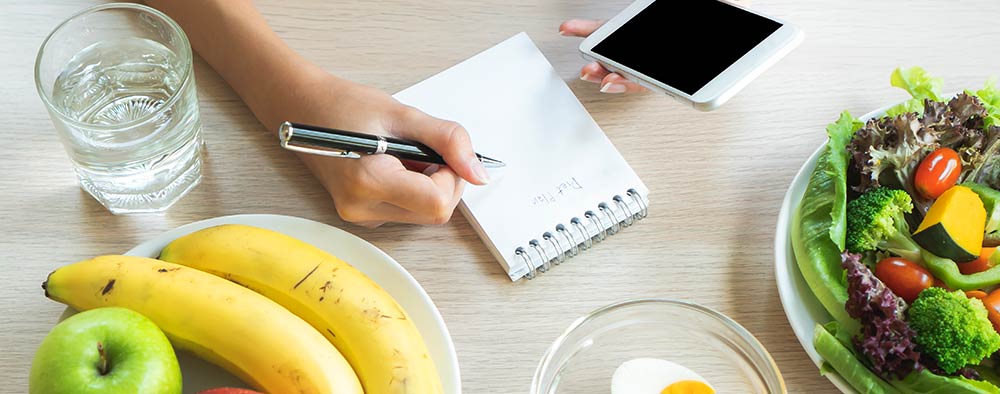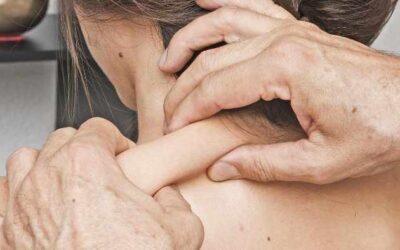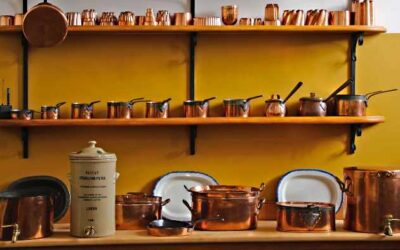by Brent Hearn •
Dear Diary,
I know my recent entries have been a whole lot of wholesome and a little bit of sweet, but not today. Oh, no…not today, Diary. Today, things are going to get a little, shall we say…spicy.Oh, who am I kidding? There’s no use playing coy. Today’s entry is going to be hotter than a heated parka in July.
I had habaneros, some three-pepper salsa, and pepper jack cheese on my burger. And that was just lunch. Wait until you read what I do for dinner, Future Me!
Sincerely,
Hot-Lips Here-and-Now Me
A lot goes into determining which foods—and how much of them—are ideal for your body: your age, your activity level, any underlying health conditions, your genetic makeup…and the list goes on and on. But whatever your particular nutritional needs, it’s hard to evaluate what changes you need to make in your diet if you don’t have a realistic perception of what—and how much—you’re consuming in the first place.
This is where keeping a food diary comes in. Unfortunately, most food diary entries are not as exciting as the one above. (But you do you—whatever it takes to get the job done, right?)
A food diary (or food journal) is pretty much what it sounds like: a record of everything you consume throughout a given time period. Whether you’re thinking of keeping a food diary for your own purposes or you’ve been “volun-told” by a doctor to do so, here are a few tips to help you on your journey.
Be sure you should be keeping one.
Though a food journal can be a powerful and positive tool, it’s not right for everyone. If you have a history of disordered eating, if you have obsessive thoughts related to food, or if the practice of recording what you consume causes an unhealthy amount of stress or shame, keeping a record may do more harm than good. Consult a physician to see if keeping a food diary is right for you.
Know Your Goals.
Do you need to establish some personal accountability for your eating habits? Do you need to kickstart a lifestyle change? Do you have a serious health challenge or a possible food allergy that requires particular precision in your record-keeping? As with any worthwhile endeavor, let your goals inform your practice.
Write it all down.
Everything. Everything that goes in your mouth. Many people don’t realize just how many calories they’re consuming. That little bag of chips here…that handful of candy there—it all adds up!
Yes, the beverages too!
Even if you feel like you have a good idea of what you eat, do you have a handle on what you drink? You might be surprised—maybe even flabbergasted—at the number of calories you drink in a day. A fully loaded latte in the morning, another coffee for a mid-afternoon pick-me-up, a glass of fruit juice, maybe a glass of wine in the evening, and…congrats—you may have just consumed a third to a half of your recommended calories for the day without counting a single bite of food.
Do it while it’s fresh in your mind.
It’s a lot easier to remember what you ate five minutes ago than what you ate two days ago (or even a few hours ago, for that matter). What did you add to your oatmeal this morning? Was it yesterday or the day before that you went heavy on the salad dressing? Write it down immediately, and you won’t find yourself scrambling at bedtime to remember.
Look it up.
Think you know how many calories are in that ribeye/asparagus/handful of blueberries you just ate? Think again. Not every food’s caloric content is as intuitive as you think; some have more than you might imagine, while others may have less. If in doubt, look it up!
Read the label.
Along those same lines, put your layman lawyer hat on when reading nutritional info, and read the fine print. It’s very easy to make assumptions about the serving size, and those assumptions can work against you. In addition to being too conservative with your estimates—that overloaded spoonful of peanut butter is not a tablespoon—companies can be sneaky about their serving sizes.
Consider the circumstances.
Your doctor may want you to include information other than just the foods, beverages, and numbers. What are you doing while you’re eating? How do you feel? What’s your mood? Are you eating alone or with others? A lot of information can be gleaned about your eating habits from your environment and mindset while you’re noshing.
Yes, there’s an app for that.
Okay, there are a lot of apps for that. If you don’t feel like using ye olde pen and paper, there are plenty of options for digital recordkeeping. This Lifewire article gives pros and cons for a few, but there are more options than you can shake a turkey leg at on the market, so poke around and find an option that works best for you.
As always, consult your physician to help develop nutritional, health, and fitness goals tailored to your needs.
Sources:
Healthline: How to Keep a Food Journal: Instructions and Tips
familydoctor.org: Nutrition: Keeping a Food Diary
Lifewire: The 8 Best Food Tracker Apps of 2023









 ▶︎
▶︎  Why is the Discount Challenge prize amount $15,024? Because that is the average “per-occurrence” fine for Medicare inducements. That’s not $15,024 per patient, that’s not per provider, that’s PER VISIT. Stinks, doesn’t it? To us, the prize amount is worth the investment if we can help our profession better understand proper discounting.
Why is the Discount Challenge prize amount $15,024? Because that is the average “per-occurrence” fine for Medicare inducements. That’s not $15,024 per patient, that’s not per provider, that’s PER VISIT. Stinks, doesn’t it? To us, the prize amount is worth the investment if we can help our profession better understand proper discounting.